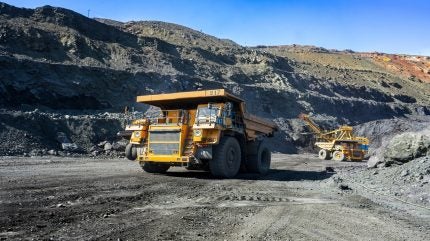Sign up for daily news updates from CleanTechnica on email. Or follow us on Google News!
I recently came across a somewhat old spreadsheet from the U.S. Department of Energy, “Public Retail Gasoline Stations by State and Year,” which covered data from 1996 to 2012 (xlsx file found HERE). It was clear that the numbers in it were not precisely accurate, but there was something very interesting in the overall decline it showed through that period. It seems that gas stations have been slowly vanishing. It set me thinking about what the end of fossil fuels will be like.
I should give a disclaimer. I am not an economist. I have been issued a patent on use of numbers to represent verbal data in useful ways. I can use the technology to make numbers take on meanings they have never had before. But I have to admit that when a number starts with a dollar sign, it loses nearly all meaning for me.
Thinking things through, I have come to the conclusion that the Law of Supply and Demand (at least as it is popularly understood) will not do well foreshadowing what will happen when we get to a point where declining demand for fossil fuels takes a big bite out of sales.
We might think that given a declining demand, the price will go down. I think it probably will for a while, but not in the long term. At some point, the price will increase on a falling demand, even if the supply is constant. Let me say that again: The price will increase because the demand is falling, even though the supply is constant.
This would arise because of the actual cost of production of the fuel. The cost of keeping the infrastructure needed to produce the fuel could be nearly the same, regardless of how much of it is produced. If that is so, then producing it in low quantities is far more expensive, on a per gallon basis, than in high amounts.
If I live in a town with a dozen gas stations, a reduction in the demand for gasoline will cause them to go into a competitive stage. Some of them will go out of business on the declining price of gasoline. But at some point, probably before we are down to two gas stations remaining, the retail price will have to be raised. This is to cover the cost of keeping a gas station open when it is not selling as much gas as it once did.
A similar situation will act all up and down the supply chain. It will cost more per gallon to pump oil. It will cost more per gallon to transport it in lower quantity. Refining it will cost more per gallon. And so on. And it will also apply to other fuels, such as home heating oil.
I saw this happen some years ago. As part of a research project, I looked up how to get fuel for a vehicle I didn’t have and knew I wouldn’t buy. The vehicle required leaded gas of 109 octane. It happens that at one point, such gas was available fairly easily, if you knew where to get it. But in the reduced market, I would have to drive 27 miles to get to the airport where unleaded 109 octane gas was available, and I would have to buy tetraethyllead separately and mix it with the fuel I was buying. I could still do that today, by claiming it was for farm equipment. And since the 3.7-tonne vehicle of my research project gets 6 mpg, it would take me 4.5 gallons to get home after filling it. Of course, I would have to go back to the airport before my remaining fuel fell to 4.5 gallons. Perhaps you understand one reason why I wouldn’t buy a vehicle of that type. (There are others. For example, I really don’t need an armored car.)
That, of course, is an extreme, for now. But it points the way to how it will one day be difficult to buy fuel for any vehicle that runs on the gas or diesel oil we now consider normal. That day will come, if we are to transition away from fossil fuels. In the meantime, I believe gasoline and oil prices will fluctuate until demand gets low enough that it costs a lot extra to get the fuel.
I think that at some point, the Law of Supply and Demand will have to be modified to reflect what happens when a transition from fuel to no fuel leaves diehards trying harder and harder to get what they want to make the noise and smoke they want to make. And in the meantime, anyone with a vehicle that requires fossil fuel should think about the meaning of range anxiety in a world that might have very little sympathy for the difficulties you go through as you struggle to get fuel.
Photo by Aubrey Odom, Unsplash.
Have a tip for CleanTechnica? Want to advertise? Want to suggest a guest for our CleanTech Talk podcast? Contact us here.
Latest CleanTechnica.TV Videos
CleanTechnica uses affiliate links. See our policy here.
CleanTechnica’s Comment Policy





